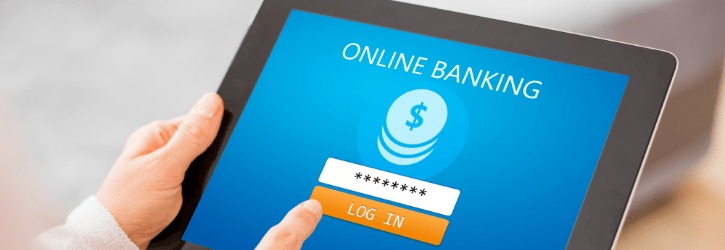
Welcome To The Data Leak Lawyers Blog
We focus on the latest news surrounding data breaches, leaks and hacks plus daily internet security articles.

We focus on the latest news surrounding data breaches, leaks and hacks plus daily internet security articles.

According to some recent and rather worrying research, the question as to who is responsible for data protection is that it’s a HR problem, some executives say.
According to a spread of UK executives who were asked about where the responsibilities are in terms of compromised credentials, like stolen or misused passwords, it’s a HR training issue.
It’s understood that one-fifth of respondents placed the responsibility in the hands of HR departments, with close to a thousand executives questioned. Some respondents also considered compromised credentials and weak passwords as very little risk to the business as well.

Ransomware attacks are still on the rise, and we all have every reason to be very worried about the increasing trends we’re seeing.
According to at least one piece of recent research, 2018 has already seen double the rate of ransomware attacks so far, but what’s equally as concerning is that the attacks are changing tact to go for bigger targets to demand higher ransoms, and the hackers are enjoying success.
It’s a sign of the times, and we all need to be very careful to make sure we protect ourselves from the growing risks of ransomware attacks.

There are suggestions that mobile phone data protection is lagging behind as a result of security immaturity and attitudes toward mobile safety.
The smartphone industry in particular has grown exponentially in recent years, and with more than half of the internet’s traffic thought to be on mobile devices, and with mobile apps springing up all the time, some experts are concerned at the lack of maturity mobile phone data protection has when compared to desktop protection.
Does security and attitudes need to change?

The year of 2017 saw a monumental 2.7 BILLIION data records compromised around the world as a result of data breaches and data hacks, estimates say.
This overall estimated figure of data records compromised is terrifying, with the UK reportedly in second place (behind the US) when it comes to the league table of breaches around the world.
They really are happening all the time and all over the place, and figures suggest that numbers have almost doubled in the UK from 2016 to 2017.

Recent study findings suggest that healthcare cybersecurity is still a cause for concern, with the healthcare industry itself a prime target for cybercriminals.
Underfunding and a lack of understanding by bosses means there are still huge gaps and vulnerabilities when it comes to healthcare cybersecurity, putting countless people’s private and sensitive medical data at risk of leaks and hacks.
It’s a simple case of pace: the healthcare industry doesn’t appear to be able to keep up to speed with the pace of the cybercriminals who are targeting them.

Cybersecurity is not a priority for most businesses in the UK, results from recent research has indicated.
Despite us being in a time where the importance of cybersecurity has never been more prevalent, businesses are still not showing the respect to cybersecurity that it deserves. In fact, recent research suggested that just 10pc of UK businesses see cybersecurity as their biggest challenge to economic success, despite 2018 being the big year of the GDPR changes.
With the Information Commissioner’s Office (ICO) now having the power to fine data breach offenders up to £17m, how cybersecurity is not a priority is incredibly baffling.

The recent Booking.com WhatsApp and text fraud operation showed precisely what criminals can do with enough data at their disposal.
According to the media reports in the aftermath of the Booking.com WhatsApp and text issue, criminals were looking to reap hundreds of thousands of pounds in ill-gotten gains by duping people into thinking they were Booking.com by using personalised messages that were said to have looked genuine, and included personal data.
Some people reportedly fell for the scam and lost money as a result, and we understand that Booking.com has committed to compensating victims.

As the technology and use of unmanned aerial vehicles continues to grow, drone jacking could be the next big data breach risk.
Drones are already used in a number of industries: engineers use them for surveillance; insurance companies reportedly use them for monitoring; and Amazon want to use them to deliver packages to the doorsteps of homes around the world.
Our concerns are simple: if organisations can’t even get data protection right on a systems and software level, how are they going to get it right when it comes to potentially dangerous drones?

The recent TSB data breach issue will lead to compensation claims after the bank promised that no customer will be left out of pocket.
The huge TSB data breach was caused when a system upgrade went horribly wrong, leaving countless TSB customers unable to use their banking facilities online for several weeks. The system failures also led to serious data breaches where customers were able to see the personal details of other customers, and some customers’ funds and transactions appeared and disappeared in the accounts of others.
TSB’s promise to those affected should mean successful compensation claims.

Retail cyber attacks and the legal viewpoint is a simple one: as with any other organisation, retailers must protect their customers’ information.
Yet, in recent times, we’ve witnessed a lot of retail cyber attacks that were entirely preventable, and retailers are an obvious target for cyber-criminals.
Retail cyber security can be a complex matter. With numerous breach points along varying suppliers and across potentially hundreds of thousands of outlets, it’s not the easiest of issues to address, but the legal viewpoint remains that customers data must be protected, or retail cyber attacks will lead to legal action and compensation for victims.
EasyJet admits data of nine million hacked
British Airways data breach: How to claim up to £6,000 compensation
Are you owed £5,000 for the Virgin Media data breach?
Virgin Media faces £4.5 BILLION in compensation payouts
BA customers given final deadline to claim compensation for data breach
Shoppers slam Morrisons after loyalty points stolen
Half a million customers can sue BA over huge data breach
Lawyers accuse BA of 'swerving responsibility' for data breach
The biggest data breaches of 2020
Fill out our quick call back form below and we'll contact you when you're ready to talk to us.